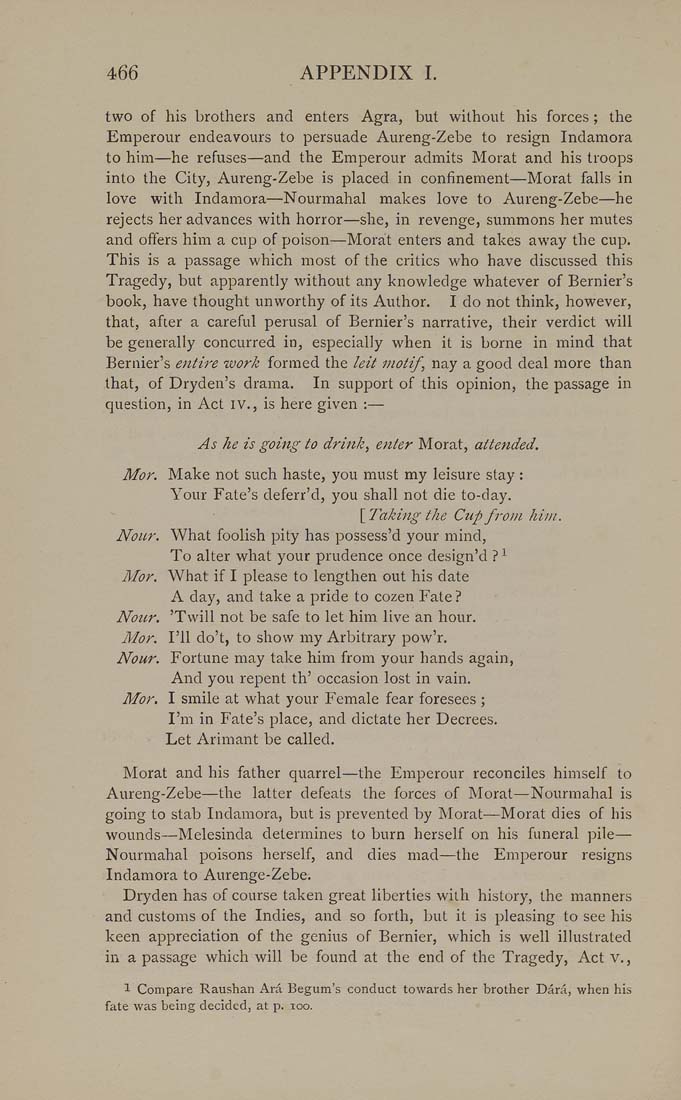466 APPENDIX I.
two of his brothers and enters Agra, but without his forces; the
Emperour endeavours to persuade Aureng-Zebe to resign Indamora
to him—he refuses—and the Emperour admits Moral and his troops
into the City, Aureng-Zebe is placed in confinement—Moral falls in
love with Indamora—Nourmahal makes love to Aureng-Zebe—he
rejects her advances with horror—she, in revenge, summons her mutes
and offers him a cup of poison—Moral enters and takes away the cup.
This is a passage which most of the critics who have discussed this
Tragedy, but apparently without any knowledge whatever of Bernier's
book, have thought unworthy of its Author. 1 do not think, however,
that, after a careful perusal of Bernier's narrative, their verdict will
be generally concurred in, especially when it is borne in mind that
Bernier's entire work formed the leit motif, nay a good deal more than
that, of Dryden's drama. In support of this opinion, the passage in
question, in Act iv., is here given :—
As he is going to drink, enter Moraf, attended.
Mor. Make not such haste, you must my leisure stay :
Your Fate's deferr'd, you shall not die to-day.
[ Taking the Cup from him.
Nour. What foolish pity has possess'd your mind.
To alter what your prudence once design'd ? ^
Mor. What if I please to lengthen out his date
A day, and take a pride to cozen Fate ?
Nour. 'Twill not be safe to let him live an hour.
Mor. I'll do't, to show my Arbitrary pow'r.
Nour. Fortune may take him from your hands again.
And you repent th' occasion lost in vain.
Mor. I smile at what your Female fear foresees;
I'm in Fate's place, and dictate her Decrees.
Let Arimant be called.
Moral and his father quarrel—the Emperour reconciles himself to
Aureng-Zebe—the latter defeats the forces of Moral—Nourmahal is
going to stab Indamora, but is prevented by Morat—Morat dies of his
wounds—Melesinda determines to burn herself on his funeral pile—
Nourmahal poisons herself, and dies mad—the Emperour resigns
Indamora to Aurenge-Zebe.
Dryden has of course taken great liberties with history, the manners
and customs of the Indies, and so forth, but it is pleasing to see his
keen appreciation of the genius of Bernier, which is well illustrated
in a passage which will be found at the end of the Tragedy, Act v.,
1 Compare Raushan .\ra Begum's conduct towards her brother Dara, when his
fate was being decided, at p. loo.
|








